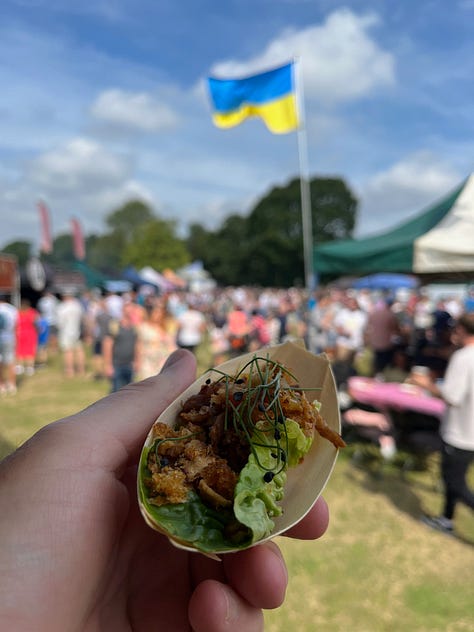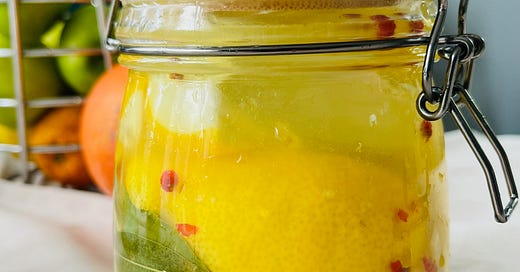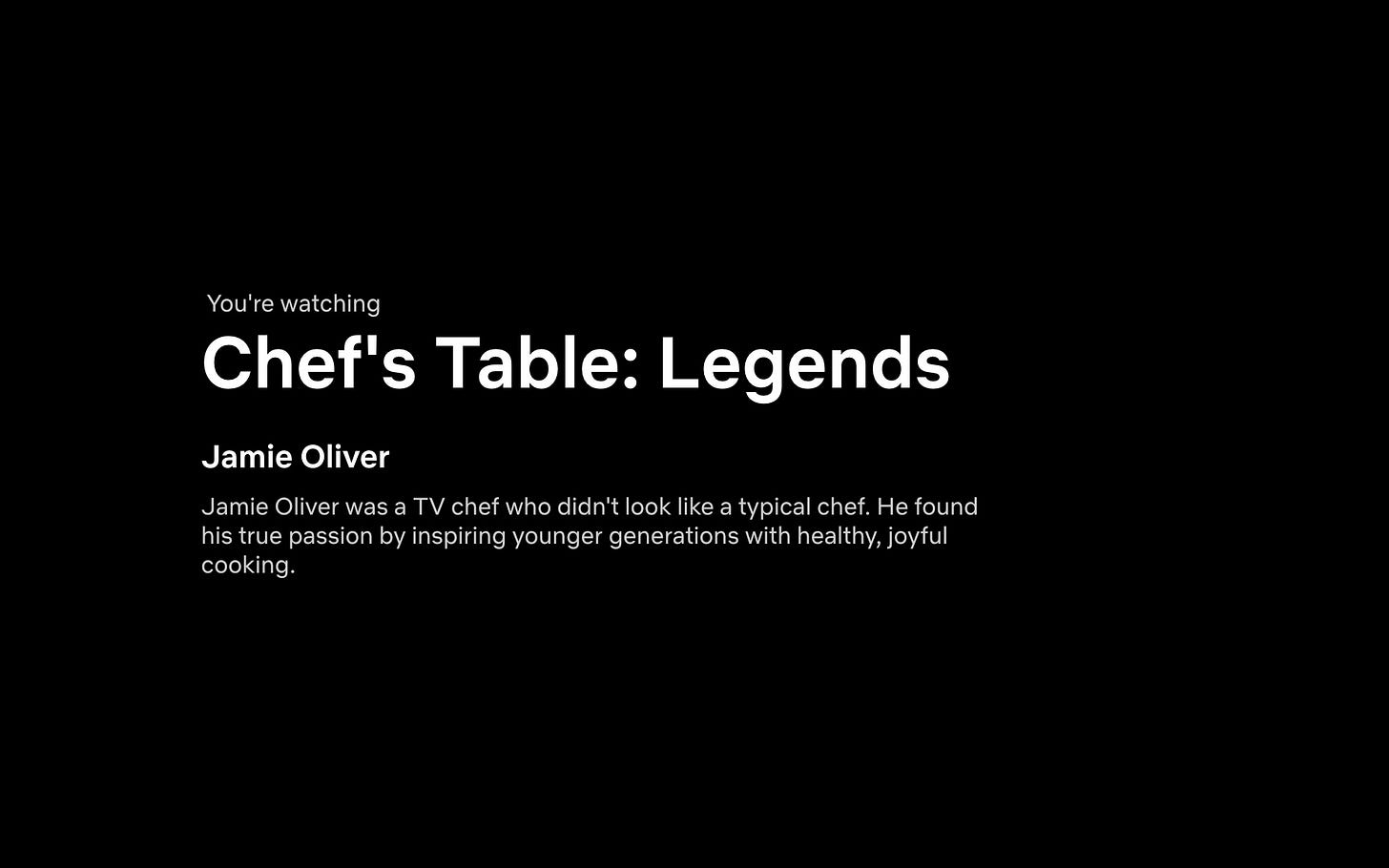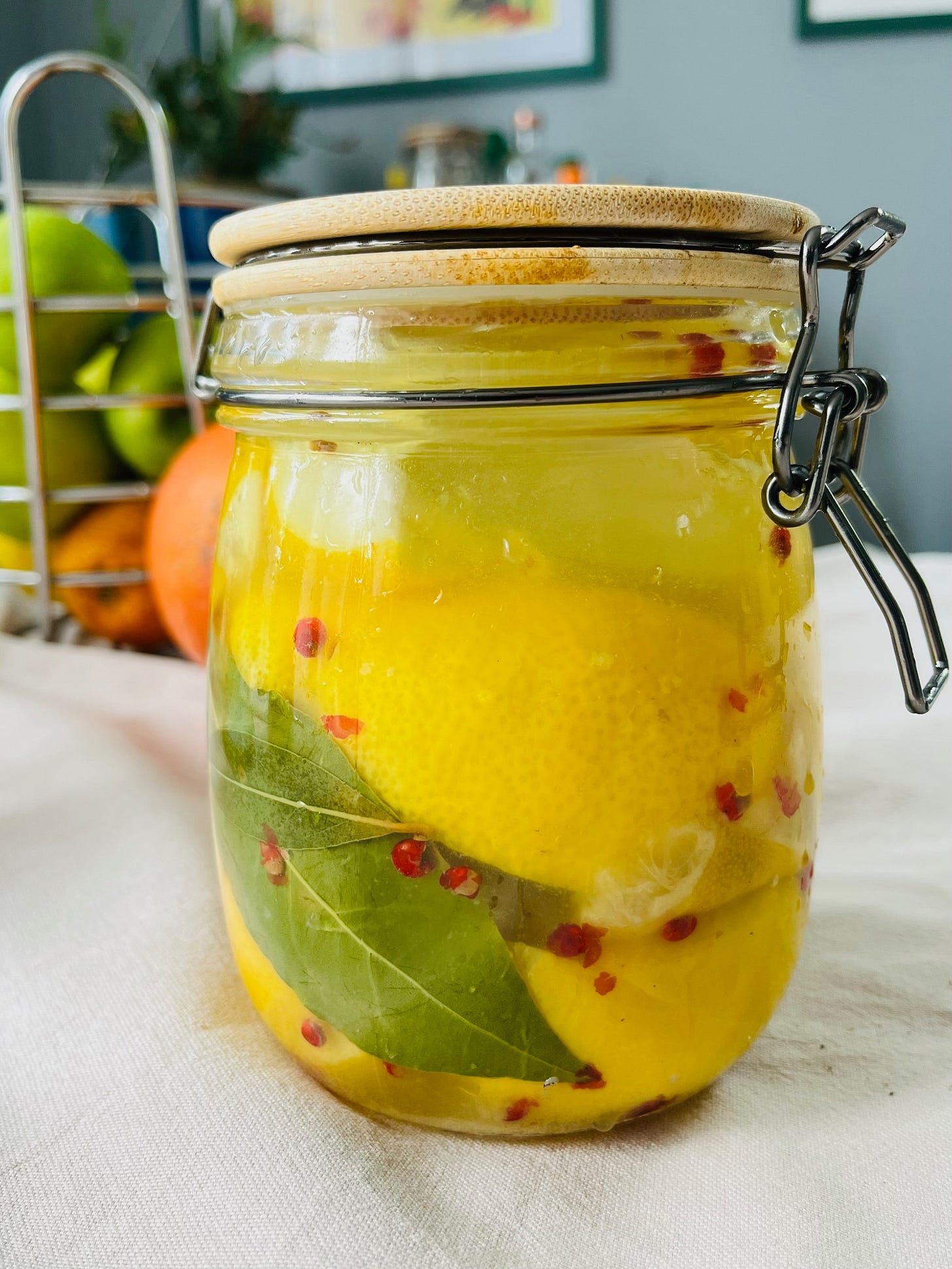Hello Lemonistas,
Welcome to the latest edition of The Lemon Grove newsletter.
Enjoy your read and let me know what you want to hear, learn and read about.
Have a great day,
Bruce, The Lemon Grove
Tonbridge Food Festival
May 24 & 25, Tonbridge Castle
I’m looking forward to getting back on stage at this bustling and busy food festival in west Kent.



On Sunday, 25 May I’ll be cooking with local and seasonal ingredients and sharing food prep, tasting and pairing tips with the crowd; interviewing local producers and chefs from among the many stalls on site. As host and cook, I’ll be on stage from 11 am - 6 pm so do come down and say hello.
Entrance is free. Click here for more information. Tonbridge Castle, TN9 1BG.
Seasons give shape and meaning to our lives
As a young man, Autumn was once my favourite season, but now I have reasons to love all four. Seasons give shape and meaning to lives. According to Cambridge University academic Dr Carl Watkins, seasons were often depicted in medieval art and … ‘captured the rhythm, and in so doing also celebrated the sacredness of time, was the Labours of the Months. These images pictured each month with a characteristic activity – maybe parishioners beating the bounds in April, or the threshing of corn in September, pig-sticking in November or feasting by a blazing fire in December. The Labours were painted on church walls, carved on choir stalls, cut into fonts, illuminated in the pages of prayer books and remembered in poetry’.
In Bangladesh, the country operates with several seasons. It is sometimes known as the Land of Six Seasons, in addition to dividing its years by prevailing weather conditions such as hot summer, rainy monsoon, and cool dry winter.
Today, our seasons have been corrupted and blurred beyond recognition. In the UK, buying strawberries or asparagus in winter offers little solace, flavour or nutrition for those long, dark nights.
Spring offers hope, new growth and optimism. I am busy sowing seeds, and have far more than my vegetable plot can sustain. But I love Spring because of that optimism. Planting seeds suggests we have hope in the future, whatever is happening in the present. Sad news, bad news, and unexpected news can all be salved with planting and getting one’s hands connected to living soil. Summer is wonderful for the natural warmth on our skin. Autumn is the time to harvest the crops, planted months ago, and winter is the time to assess, build up reserves and enjoy the preserves made with spring planting, summer growth and autumn harvesting.
Over the past couple of months, I have sown all sorts from lemon chillis to mangelwurzels, purple-sprouting broccoli and Chinese lettuce, and these seedlings are now being tended with rainwater, sunshine and care - all with a view to feeding a fresh future. More about these in future editions of The Lemon Grove.
Five Minutes with Bruce McMichael
This month, the Guild of Food Writers posed six questions for me to consider my work in food publishing. ‘Five Minutes with …’ is a brief look at food writers’ lives, work and plans. Click here to read
READ, WATCH & COOK
READ: The Heart Shaped Tin, by Bee Wilson
Everyday kitchenware develops a patina with regular use, and often these items are handed down from generation to generation. In this book, subtitled ‘Love, Loss and Kitchen Objects’, Wilson deals with having her heart broken by her husband in 2020 who left the family abruptly after casually saying he didn’t love her anymore. The book deals with how such everyday items can help us deal with the heartbreaks and grief that life presents us all, and the road to healing. My particular everyday was left to me by my beloved, late mother - it’s a battered and bruised wooden spoon, occasionally used to beat ingredients into a batter for a comforting lemon drizzle cake.
(Published May 8).
Buy the book here.
WATCH: Chef’s Table, Legends
Netflix
Out now on Netflix, this latest series from the hugely popular Chef’s Table team focuses on the life, work and activism of four of the world’s best-known chefs and cooks. Jamie Oliver, José Andrés, Thomas Keller and Alice Waters are all given space to describe their successes, failures and what motivates them in the work and in a few cases political activism.
COOK: Preserved Lemons
This recipe is closely based on one from Ottolenghi, and is the first time that I’ve used olive oil. The changes I made are based on what ingredients and jars I had available – I would not dare suggest that mine is better, just different! I’ve also included tips on storing, sharing and using your preserved lemons.
6 unwaxed lemons, washed*
6 tbsp flaky sea salt (I used Blackthorn)
3 bay leaves, fresh
1 tsp peppercorns (I used pink)
1 peeled, whole garlic clove (optional)
6 lemons, juiced (peel was candied)
Olive oil (enough to cover)
1 Kilner jar, or similar, sterilised
Vegetable scrubbing brush (optional)
*Wash the lemons and cut a deep cross all the way from the top to 2cm from the base, so you are left with four or six attached wedges.
Stuff each lemon with a spoonful of salt and place in the jar.
Fill the jar, tightly packed with lemon. Add more lemons if there is room.
Add the bay leaves, peppercorns and garlic clove, seal the jar and leave for at least a week.
After this initial period, remove the lid and press the lemons as hard as you can to squeeze as much of the juice out of them as possible.
Add the lemon juice and cover with olive oil – gently pour over slowly until the lemons are covered.
Seal and leave in a cool place, such as a fridge, for at least a month. Flavours will develop further over time.
To use, I suggest rinsing the salt off the pieces you wish to use and removing the flesh, as it can be too salty and bitter. But if you're making something like a tagine, dressing, or sauce where a little extra saltiness and pulpiness is welcome, use the flesh. Some chefs even blend the whole lemon into sauces.
How to wash waxed and unwaxed lemons:
Unwaxed Lemons
Rinse: Start by rinsing them under cool running water.
Scrub: Use a clean vegetable brush or even your hands with a little friction to scrub off dirt.
Optional Soak: You can soak them in a mix of water + a splash of vinegar (like 1 part vinegar to 3 parts water) for a few minutes to help remove any residue or microbes.
Rinse Again: After soaking, rinse thoroughly under cool water.
Waxed Lemons
Rinse and Scrub: Same start — rinse under cool water. Use a vegetable brush to scrub a little harder.
Hot Water Trick: Quickly dip the lemons in very warm but not boiling water (say around 120°F / 49°C) for 15–20 seconds. The warmth softens the wax.
Scrub Again: Immediately after the warm water dip, scrub again with your brush.
Optional Vinegar Soak: Like with unwaxed, you can follow up with a vinegar water soak for a deeper clean.
Finally, Rinse and Dry
If you’re really concerned about removing all the wax (especially if you're zesting), some people mix a little baking soda with water to make a paste and gently rub it over the lemon before rinsing.
DIY Natural Fruit & Lemon Wash
You'll need:
1 cup water
1 tablespoon baking soda
1 tablespoon white vinegar or apple cider vinegar
Steps:
Mix the water, baking soda, and vinegar in a bowl or spray bottle. (It will fizz a little — that's normal.)
Dip your lemons into the mixture, or spray them generously if you're using a bottle.
Let them sit for about 2–5 minutes.
Scrub with a vegetable brush or your hands.
Rinse thoroughly under cool running water.
Dry with a clean towel or air dry.
Why this works:
Baking soda helps break down dirt, wax, and some pesticide residues.
Vinegar is antimicrobial and helps lift grime.
Water dilutes everything so it's safe and not too harsh.
🌟 Some quick storage tips:
Fridge is best once they’re washed — keeps them juicy way longer.
For unwaxed lemons, it's important to keep them sealed (like in a zip bag or sealed container) because they lose moisture super fast.
You can also wrap them lightly in a damp paper towel inside a container to keep them plump.
Cut lemons? Store them cut-side down in a small airtight container, or wrap them tightly — they'll last about 3–4 days refrigerated.
If you ever have lemons that are starting to look sad, you can freeze the juice or even zest them first and freeze the zest separately!
The Lemon Grove's Substack newsletter
Give the gift of a 'The Lemon Grove' Substack newsletter to a friend, family member or yourself! Organise your gift through this link below … Thank you.
If you enjoyed this post, please click on the little ❤️ below ⬇️.
If you haven’t already downloaded the Substack App, I encourage you to do so.
The app is how you’ll access the full value and experience of your subscription to The Lemon Grove.
Thanks for reading, and please do leave a comment by pressing the button below!
Bruce McMichael
Writer, Podcaster, Event Host & Cook, Lemonista
Email: hello@thelemongrove.net
Facebook: LemonGroveSocial
Instagram: LemonGrovePics








